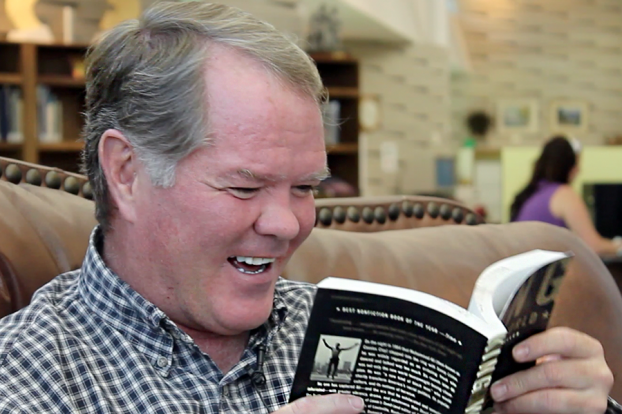Canadian boxing icon starts sports safety program

By Greg Murphy
Shawn O’Sullivan left pro boxing 16 years ago but still feels the affects of repeatedly being struck in the head.
Today, he suffers from brain damage.
On May 15, O’Sullivan launched a program called “Shawn Says: ’Protect Yourself, Protect Your Future.’” The intent of the program is to educate athletes of the potential dangers of repeatedly sustaining a concussion.
“We are trying to educate, just make everyone plain-Jane aware, as I wasn’t even aware of what an actual concussion was,” said O’Sullivan in an interview, Monday.
O’Sullivan didn’t know what a concussion was.
“I thought ‘ wow, I wonder how many athletes or players or hockey players or anybody is equally, as I was doing, enjoying the affects of concussions without even knowing,’” said O’Sullivan.
The retired professional boxer at one point was a two-time world amateur champion and Canadian athlete of the year. In the 1984 summer Olympics in Los Angeles, O’Sullivan won silver in the light middleweight division for Canada.
O’Sullivan lives in Belleville. He worked odd jobs renovating houses and being a janitor. He is divorced with five kids.
During the interview, O’Sullivan sometimes slurred his speech and had difficulties remembering parts of his life.
Nonetheless, his charm still remains intact.
Around two years ago, O’Sullivan said he met George Barrie through his brother who he worked with in Toronto. Barrie introduced him to Scott Granville, and Stephen Paquet.
The four make the “Shawn Says” team.
“George and Scott and Steve and all these guys put their heads together and said ‘here’s a natural. We got this guy and he’s enjoyed some of the effects of concussions.’ From there it took off,” said O’Sullivan.
The program will feature a number of videos spotlighting pro athletes and their experiences with concussions.
O’Sullivan had met some of these athletes during his time as a pro.
“We had a number of old NHL’ers that I went to celebrity dinners with back in the 80’s. So it was like an old home week. It was great, and it was very fine for me to see these guys again,”
Some athletes involved include hockey players Guy Lafleur of the Montreal Canadiens, and Mike Gartner of the Maple Leafs.
O’Sullivan said the athletes were all willing to help with the program.
The Brain Injury Association of Quinte has also lent a helping hand.
“They’re great, they have assisted in virtually every direction we’re moving in,” said O’Sullivan.
O’Sullivan will be a keynote speaker In Kingston at the Brain Injury Association’s national conference. He will be speaking at the provincial conference in Niagara as well.
A meeting with the Lieutenant Governor is also on its way.
The effects of brain injury began to show when O’Sullivan lived in the Catskills in upstate New York training under Kevin Rooney. Rooney is credited with training Mike Tyson.
“It was some time around then that I had noticed the thinking part of the head was thinking weird thoughts at times,” said O’Sullivan.
O’Sullivan boxed as a pro for 23 bouts after the 1984 Olympics. In 1988, O’Sullivan lost two bouts and retired. O’Sullivan returned to the ring in 1991 to try again.
After a second comeback in 1996, O’Sullivan lost the taste for the ring.
“By the second comeback, or by the third comeback, I thought ‘what am I doing, this game is not fun anymore.’ I couldn’t even bare to look at my gym bag,” said O’Sullivan.
After four bouts, in 1997, a neurologist refused to renew the license he needed to continue boxing due to brain damage he saw during a CAT scan.
Though O’Sullivan does not expect the program to make a direct change in the way contact sports are played, he does want to raise awareness so young athletes are more careful.
O’Sullivan is living with the difficulties of brain damage, however, he does not regret his career in boxing.
“It’s called life, everybody leads a life, partakes in sports and athletics. I have no regrets,” said O’Sullivan.
 Print This Post
Print This Post






